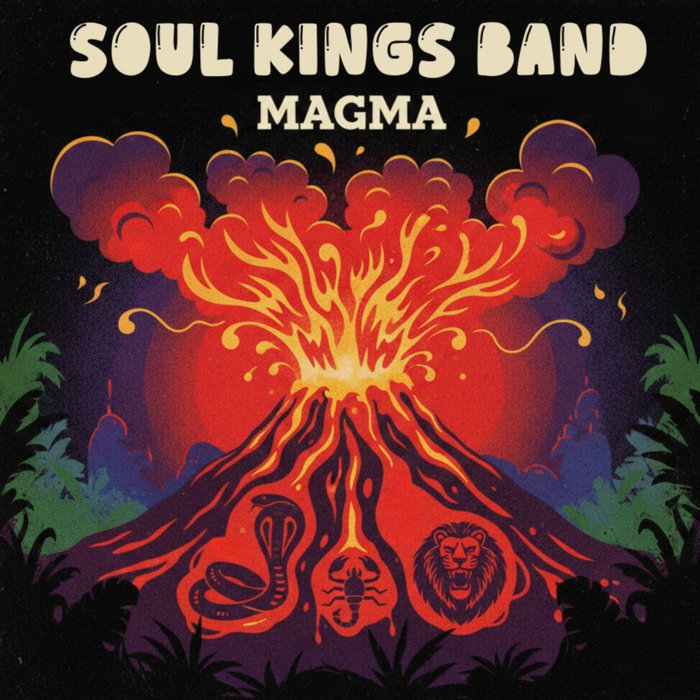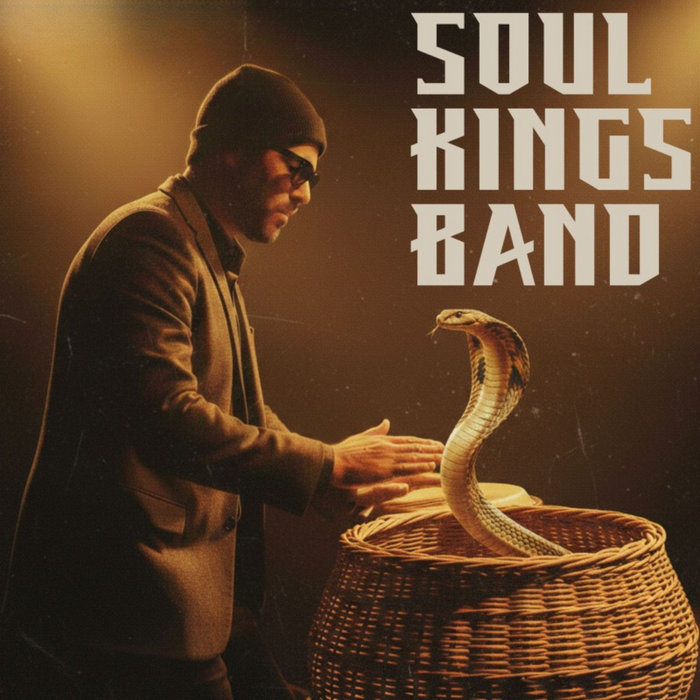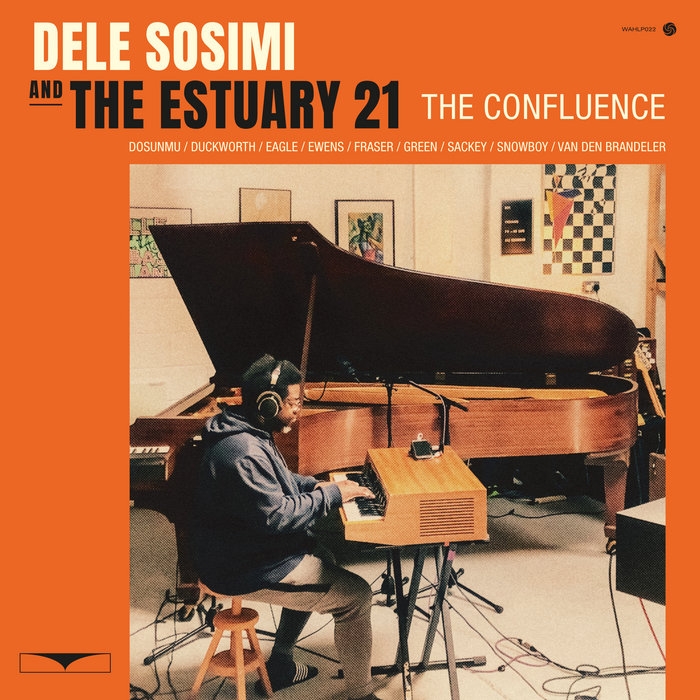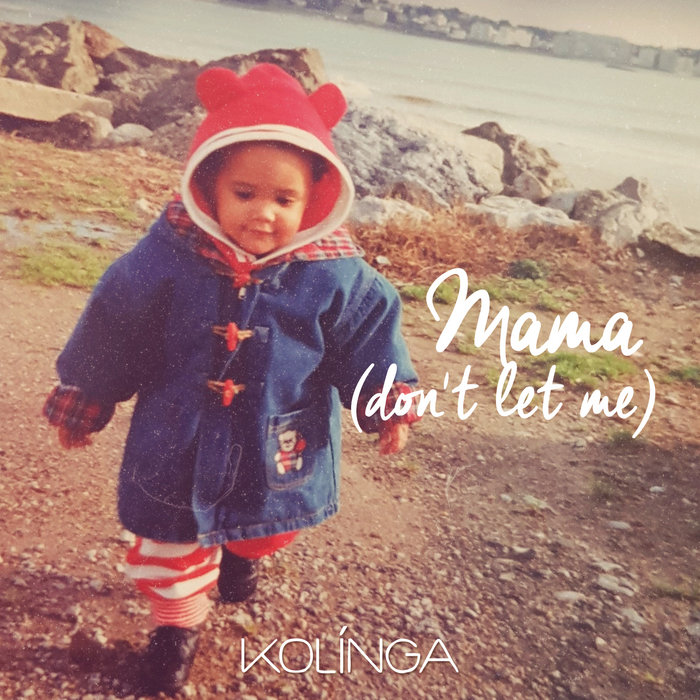
Magma – Soul Kings Band
this blog is GROOVY – check out great Soul, Funk, Jazz, Hip Hop, Bass, Breaks , Reggae, House n many more TUNES
Afrosoul is more than just a genre; it’s a vibrant tapestry woven from the rich threads of African rhythms, soulful vibes, and cultural expressions. Let’s take a funky journey through the history of afrosoul, spot some groovy musicians along the way, and chuckle at some funny facts about these talented artists.
Afrosoul sprouted in the late 1960s and early 1970s as African musicians began to blend traditional sounds with Western soul music. You could say it was like peanut butter meeting jelly—two tasty flavors that created something totally unique! Artists started experimenting with instruments like guitars and keyboards while keeping their roots alive with drums and traditional melodies.
Take for example Fela Kuti, often hailed as one of Africa’s greatest musical minds. He didn’t just create music; he created Afrobeat, which paved ways for afrosoul. Fela infused funk, jazz, highlife, and traditional African music into his beats. His songs were long jams filled with politically charged lyrics that made folks dance while they thought!
Here’s a fun fact: Fela had an incredible knack for naming his songs—creative titles included “Zombie” (a critique on Nigerian soldiers) and “Lady.” But wait till you hear this: he once named an album Shakara! That means “a show-off,” which fittingly describes his flamboyant style both on stage and off!
As afrosoul grew in popularity throughout the ’70s and ’80s across Africa—and even internationally—it started to attract attention due to its infectious grooves. With artists from countries like Nigeria, Ghana, South Africa, Senegal making waves everywhere!
Enter Burna Boy, one of today’s biggest stars who blends afrobeats with reggae influences into spectacular fusions evocative of the original sound but modernized for today’s audience! Known for performances that feel more like parties than concerts—a testament to how deeply rooted rhythm is in his craft.
Did you know Burna Boy used to be such a shy kid? Reports say he would hide behind speakers at shows instead of performing! Fast forward now—he rocks stages globally without missing a beat!
Let’s not forget about dynamic female voices too! Artists like Nina Simone, though not strictly labelled as afrosoul (she’s often considered part of R&B or jazz), influenced countless musicians who followed suit toward integrating Black consciousness within soulful tunes.
Another powerhouse is Ayo—the queen known for her heartfelt lyrics mixed with catchy melodies born outta her Nigerian-German heritage! Ayo isn’t afraid to embrace her quirky side either; she has been spotted wearing colorful outfits that look straight from your grandma’s attic!
And here comes another giggle-worthy fact — when asked why she chose “Ayo” as her stage name (meaning “joy” in Yoruba), she said simply because life can get so serious sometimes… why not bring joy?! What better reason?!
Fast forward to today—the global soundscape transformed by social media platforms allows up-and-coming artists opportunities unheard before where they can showcase their flair worldwide easily. From Nigeria’s Rich Brian rapping over catchy afrobeats to Kenya’s Sauti Sol combining harmonies & melodies reminiscent yet refreshing every time heard—you name it; there’s no stopping them now.
Meanwhile, emerging producers are sampling classic tracks or collaborating across genres blending hip-hop sensibilities within deep-rooted rhythms creating what we call contemporary soundscapes full circle back home again celebrating roots!
Musicians aren’t just vibing alone either—they’re teaming up left right center showcasing unity beyond borders—that funkiness knows no bounds! Like when Major Lazer collaborated with Wizkid turning heads around globe clubs increasing popularity through hits breaking records everywhere while tugging heartstrings simultaneously—a true win-win situation friends!
Oh boy do we love collaborations—It brings us laughter too—for instance during these jam sessions between different cultures artistic quirks come alive organically revealing humorous moments unintentionally caught on camera resulting gif-worthy memes immediately adored online lets’ keep our eyes peeled folks!!
The story continues shifting pace everyday—from bops blasting through headphones getting everyone moving dance floors packed tight benefiting good ol’ fashioned soul food being served hot fresh round-the-clock kitchens preparing beautiful dishes side projects shining spotlight onto creatives lifting one another higher each passing day—we celebrate all things afro-sounds together encouraging unity showing there ain’t nothing quite resonating more alluringly uplifting harmonious vibes found throughout our beloved world wide web universe!!!
So next time you’re jamming out or diving deeper into exploring those juicy sweet tones remember hey brother sister support local legends coming together creating magic worth celebrating times infinity because ultimately every beat counts—infinite grooviness abides here forevermore!!

Magma – Soul Kings Band

Golden Cobra – Soul Kings Band

The Confluence EP – Dele Sosimi & the Estuary 21

Legacy Remix – Kolinga

Mama (Don’t Let Me) – Kolinga